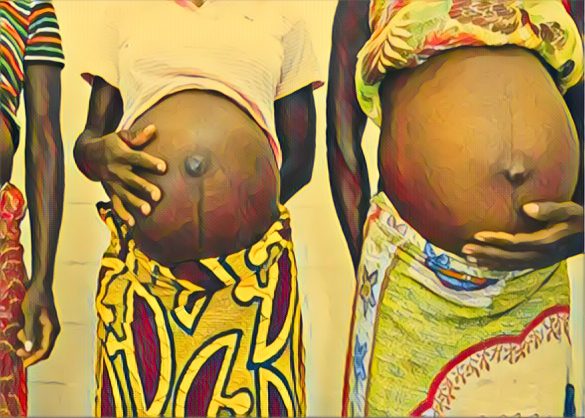Amid Zimbabwe’s economic crisis, a stark rise in child and teenage pregnancies has set off alarms across the nation, according to a forthcoming survey conducted jointly by the United Nations Children’s Fund (UNICEF) and the Zimbabwean government.
According to a comprehensive report by Newsday Zimbabwe, the report, anticipated for imminent release, aims to unveil the severity of the issue and propose concrete solutions. This collaborative initiative gained spotlight during a recent meeting between UNICEF’s resident representative, Tajudeen Oyewale, and Jacob Mudenda, the Speaker of the National Assembly, in Harare.
Addressing pivotal achievements of the 9th Parliament concerning children’s welfare, Oyewale expressed grave concerns shared with Mudenda over surging adolescent pregnancies, particularly post-COVID-19. Experts observe that the pandemic’s ripple effects, including prolonged school closures during lockdowns, have exacerbated the crisis.
Oyewale confirmed, “In response to this troubling trend, UNICEF, alongside the Ministries of Health and Education, has concluded an extensive survey. The findings will guide our subsequent steps in mitigating this societal challenge.”
Beyond pregnancy woes, Zimbabwe faces another threat: the burgeoning drug and substance abuse crisis among youth. Acknowledging the peril it poses to future generations, Oyewale stated, “We’ve undertaken a thorough review to understand what drives this detrimental behavior. Collaborating with the Ministry of Public Service, we’ve crafted a national strategy for combating this menace.”
Determined to safeguard the strides made in enhancing children’s lives, UNICEF vows robust investments in initiatives to curb adolescent pregnancies and thwart substance abuse.
Corroborating the severity of the issue, child rights organization Zvandiri earlier disclosed an alarming statistic: 95% of teenage pregnancies are unintended, often a repercussion of rampant poverty. Similarly, the Family Aids Caring Trust reported an unprecedented spike in underage pregnancies from 2020 to 2022, further underscoring the urgency of the situation.
As Zimbabwe grapples with these multifaceted challenges, the call for swift, effective action resonates stronger than ever.


